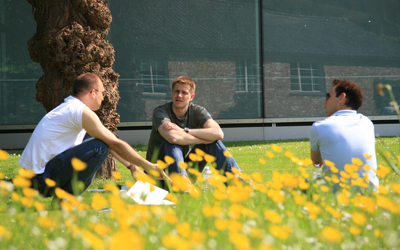Finance overview Funding How to apply
 There are many opportunities for research students to get involved in other aspects of the research and teaching life of the Faculty during their time in Cambridge. Here are some examples:
There are many opportunities for research students to get involved in other aspects of the research and teaching life of the Faculty during their time in Cambridge. Here are some examples:
Cambridge International Law Journal (CILJ)
The Cambridge International Law Journal (CILJ) (formerly the Cambridge Journal of International and Comparative Law) is a double-blind peer-reviewed journal run by members of the postgraduate community at the Faculty of Law. Assisted by its distinguished Academic Review Board, it selects and publishes high quality contributions by both established and young academics in the fields of international and European Union (EU) law. The CILJ publishes two issues per year: one general and one primarily based on our annual conference.
The CILJ also has a blog that publishes short analysis pieces on issues of international and EU law, managed by a specialist team of the editorial board. The CILJ occasionally organises other events for its editors and for the wider Cambridge community.
Every year in Lent Term, the CILJ organises a conference on current topics in international and EU law. Recent keynote speakers include former President of the International Court of Justice, Dame Rosalyn Higgins, former President of the European Court of Human Rights, Dean Spielmann and Judge Christopher Vajda of the Court of Justice of the European Union.
The opportunity to work on the editorial board of a well-renowned academic law journal will be of great value for a future career in academia or legal practice.
The Cambridge Pro Bono Project
The Cambridge Pro Bono Project ("CPP") was established within the Faculty of Law to provide a vehicle for graduate law students at the University of Cambridge to assist in the preparation of legal work in a pro bono capacity. Its core objectives are:
- to provide postgraduate students with an opportunity to engage with the law in a practical way, and to develop the skills and values central to the provision of pro bono legal work;
- to provide an avenue for the Faculty of Law to make a meaningful and practical contribution to public interest law; and
- to facilitate collaboration between the Faculty of Law and legal practitioners and organisations undertaking legal work in a pro bono capacity.
The CPP conducts three to four major research projects each year. It is led by an Executive Committee of four Faculty members and four to five graduate student members. Involvement in the Executive Committee provides an excellent opportunity to apply research skills in a practical, meaningful setting; make a substantial contribution to real world legal issues; and develop sought-after transferable skills.
Graduate Research Seminar
The GRS is a termly, student-run series at which research students present their work to a generalist lawyer audience on the challenging 20/20 format: 20 slides, with each slide up for 20 seconds. There is nothing more challenging than having to refine your topic to its very essence in order to communicate it to non-specialists. A must for all research students!
Teaching opportunities
Research students in Cambridge are permitted to do up to 10 hours of paid academic-related work per week during their course, and many students offer their services as undergraduate supervisors for the Colleges or are recruited to assist in graduate workshop teaching on the LLM programme. Acquiring some teaching experience is a valuable step in academic career development, and there are professional development courses available free of charge from the University to support those undertaking this work.

 Facebook
Facebook  X/Twitter
X/Twitter  Instagram
Instagram  YouTube
YouTube  Flickr
Flickr  LinkedIn
LinkedIn